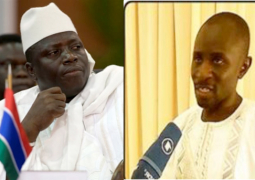
“The Gambia Competition and Consumer Protection Commission (GCCPC) notes with concern the recent decision by the Public Utilities Regulatory Authority (PURA) to introduce price regulation on internet data services following an intense period of competition among GSM operators,” GCCI states in a dispatch.
“For many years, consumers in The Gambia have faced some of the highest data prices in the sub-region, with no regulatory intervention. Recently, increased competition and innovation among operators have provided welcome relief, driving data prices to their lowest levels ever and making them more affordable for vulnerable consumers and small businesses.”
“The Commission believes that the introduction of price regulation will prevent consumers from benefiting from unfettered competition. Such regulatory interventions risk undermining the gains of open market rivalry, where businesses compete on price, quality, and service innovation to the benefit of consumers.”
“It felt like freedom,” said Lamin Jatta, a final-year student at the University of The Gambia. “We were finally able to enjoy what people in other countries take for granted: affordable internet. Now PURA wants to snatch that away.”
“The truth is, this is about the people,” he said“. “We are not asking for handouts we are just asking for affordable access to something that is essential in today’s world. PURA should listen to the voices of Gambians.”
PURA recently issued a directive warning operators to stop selling 1GB of data for less than D50. Comium, the company that sparked the price war, was specifically ordered to discontinue its most popular bundles: 500 MB for D5, 2 GB for D16, 5 GB for D79, 12 GB for D140.
The announcement sparked widespread public outcry. Many Gambians took to social media to express their anger. “This is the only thing we were enjoying as Gambians, and PURA wants to take it away from us,” fumed Omar Saidy, a resident of Serrekunda.
Others questioned the regulator’s mandate. “PURA is just a regulatory body, they should not dictate how much a GSM provider sells data,” argued Anna Manneh, a shopkeeper in Tallinding. “As long as no rules are being broken, companies should be free to set their prices. We are the consumers, and we should be the ones to benefit from competition.”
“I could stay online all day with just D20. Now they want to increase it again,” complained Ebrima Bah.”
Even small-scale entrepreneurs are feeling the pinch. “Most of my business depends on TikTok and WhatsApp,” explained Fatou Camara, who sells thrift clothes online. “With the cheap data, I could upload pictures and videos every day. It helped me grow my sales. If they remove it, it will hurt my business.”
“We are in 2025, and internet is no longer a luxury but a necessity,” said technology blogger Musa Ceesay. “For students, for businesses, for jobseekers affordable data is vital. PURA should be protecting consumers, not restricting them.”
For the first time in years, Gambians felt the joy of affordable internet scrolling freely, streaming without guilt, and connecting with loved ones without worrying about emptying their wallets. However, the Public Utilities Regulatory Authority (PURA) has put an end to the summer of cheap data, leaving citizens frustrated, disappointed, and questioning whose interests the regulator truly serves.
When Comium launched its ‘Diyya’ summer promotion slashing data prices to record low, Gambians across the country embraced it with open arms. Never before had 500MB gone for just D5 or 2GB for D16 – a move that triggered a rare wave of competition in the telecommunications sector.
The debate has also touched on broader issues of affordability and digital inclusion. Gambia, one of the smallest economies in Africa, has long been criticised for its high cost of internet services compared to average incomes.
For now, the dream of cheap internet has been cut short, but the public’s anger signals that this debate is far from over.





